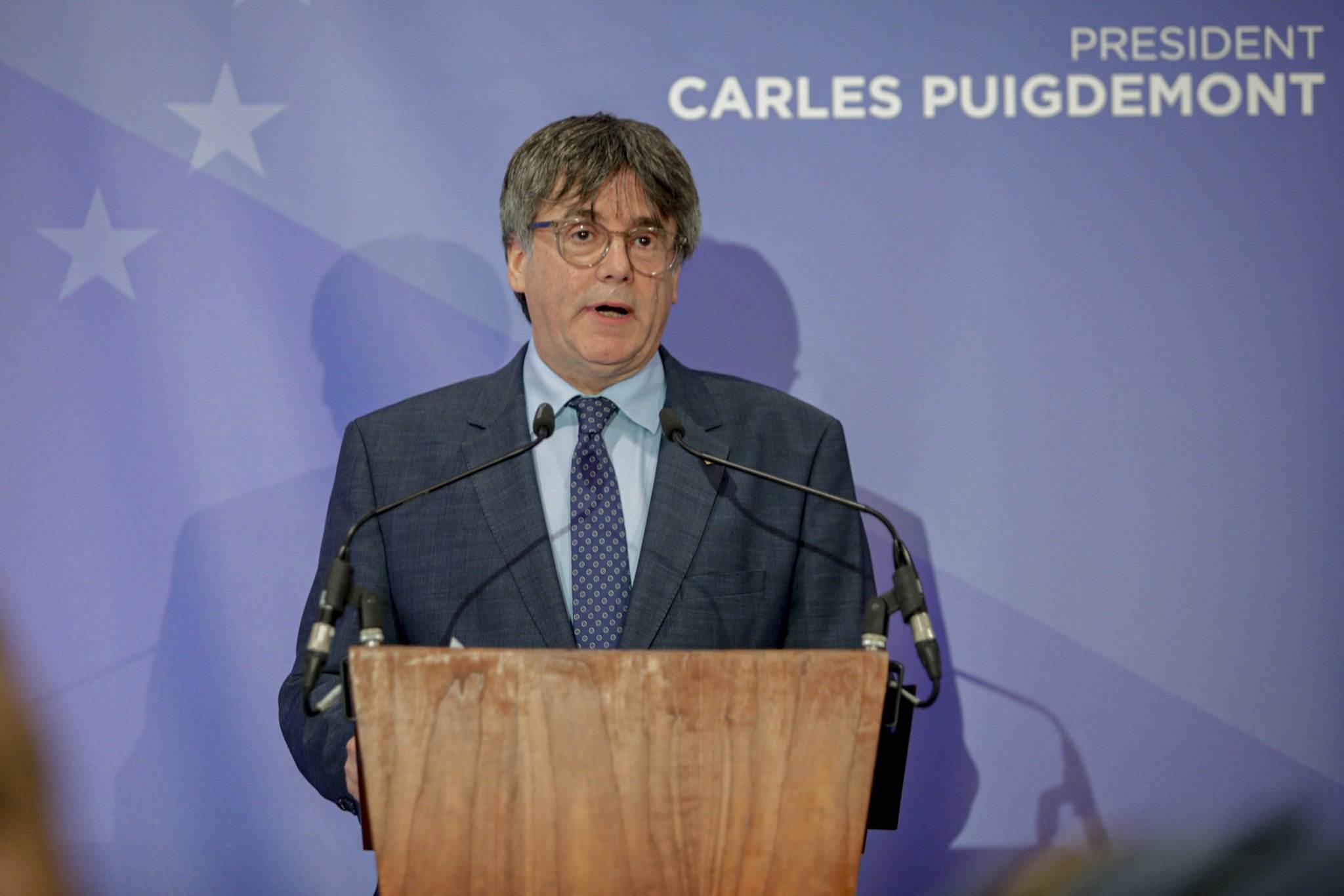The Catalan president-in-exile, Carles Puigdemont, assured this Tuesday he does not feel "involved" in what ERC "says, agrees to or fails to agree to" with the PSOE regarding the possible amnesty law, after ERC assured this Monday there is already an exchange of documents regarding the law. "I am not from ERC, therefore, I cannot speak for them nor do I feel involved in what ERC says, agrees to or fails to agree to. What ERC does has nothing to do with what we do" said Puigdemont in statements to the media.
This Monday, ERC's spokesperson, Raquel Sans, stated that the negotiation on a possible amnesty with the Socialists is already centred in "technical questions", that "documents are circulating" already, and thus she considered that "the political part is already solved". Twenty-four hours later, the exiled MEP delivered a warning, to both ERC and the PSOE, that Junts per Catalunya is not involved in these negotiations. "Esquerra will see what Esquerra does, and we will see what we do," he added.
I am not from ERC, therefore, I cannot speak for them, nor do I feel involved in what ERC says, agrees to or fails to agree to"
For its part, the acting Spanish government avoided any statements on whether it is true that an exchange of documents between the different parties on the amnesty law has taken place. The government spokesperson, Isabel Rodríguez, limited herself to explaining that for the moment formal talks have not begun to deal with the issue, but that "as is normal in Congress, the different MPs and groups talk among themselves".
Puigdemont made these declarations at an act in the House of the History of Europe's museum, where he delivered three dictionaries of Catalan and one of Aranese Occitan, in the context of the commemoration of the European Day of Languages, in an event in which the Basque culture minister, Bingen Zupiria, contributed a 1905 edition of the Basque-Spanish-French dictionary. The event —organized by the House of European History, the Intergroup of Traditional Minorities and the Federal Union of European Nationalities, among others— was attended by the UN special rapporteur on minorities, Fernand de Varennes, who called on governments and European institutions to respect linguistic diversity. "Linguistic diversity is part of our humanity", said De Varennes, who criticized the fact that governments and European institutions are not respecting linguistic diversity.

